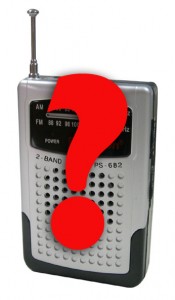Radio and Britain’s digital future

Should we keep FM? DAB? Replace it with IP-based radio?
Jack Schofield, writing in the Guardian Technology Blog (1 July 2009), urges us to “Put the boot into DAB, and try to Save FM”. I might just agree… but for a slightly different reason. Here’s the comment I added to the article.
If we are keeping digital radio in its present form, then it certainly makes sense for us to upgrade from current DAB’s antiquated MP2 technology to DAB+/DMB‑A, which allow the use of modern codecs and thus higher quality (current DAB stations are abysmal compared to good FM) on a far smaller bandwidth.
Yes, of course the vast majority of existing DAB radios will be obsolete at some point, but they do not have an enormously long life anyway, and we are all used to hardware going out of date in today’s world, aren’t we? It’s a fact of life. We get new gadgets because we want to, and because they do so much more than the old ones: there isn’t time for them to become technically obsolete.
However, there is a real question in my mind whether we shouldn’t simply skip all that and go to an IP-based system for the “radio space”.
Radio in the UK is obviously extremely popular — possibly more popular than ever, apparently paradoxically, But whether “the space occupied by radio”, to use Bill Thompson’s excellent phrase, has to be carried on a multiplex terrestrial broadcast structure for the foreseeable future is another matter, because carrying it via IP networks would make more sense.
Integrating the radio space into a national network infrastructure would make the current Band III and L‑Band spaces available for other services — but only if that IP-based infrastructure exists. It would require true broadband of the fibre-to-the-home variety supplied on a universal service basis — one <i>single</i> network in which the installation of cheaper urban infrastructure would subsidise the hard-to-reach rural environments — and would thus need to be laid down by a national service provider (even if it subcontracts installation to existing private companies).
An FTTH infrastructure would be backed up by large-scale WiMax-style wireless network provision to allow mobile listening to internet radio stations and much more, including coverage of really difficult areas.
Given that, then of course you can have all kinds of ‘ultra-local’ ‘broadcasters’ — but they could be heard all over the country (and beyond). Given symmetrical broadband we can all be content providers, even if, like most blogs, the vast majority only have a tiny audience. At the same time, the network can carry all existing radio broadcasters and you no longer need to think of the “airwaves” as a scarce resource to which only the privileged few can have access — “here comes everybody”.
If a true Digital Britain were in our future, then a sensible approach would be to hang on to FM until it’s in place. But copper-based 2Mb/s is not what this requires.

